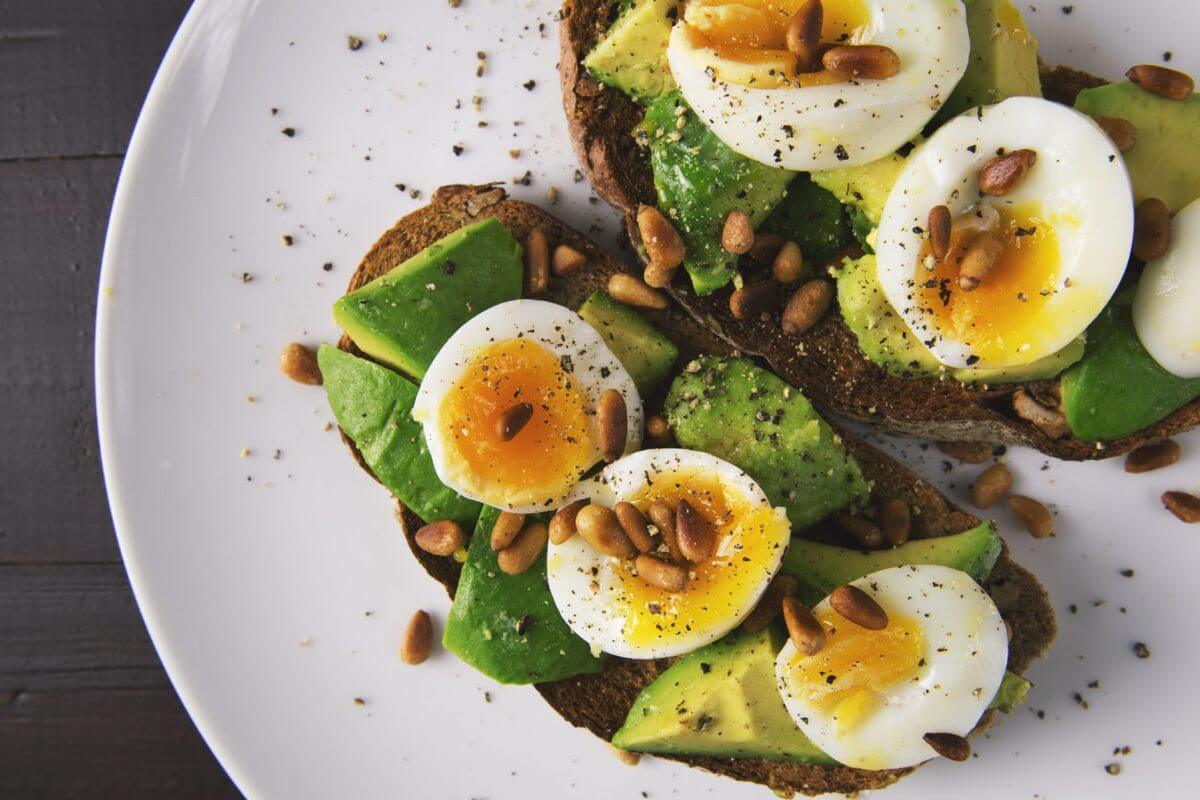Macronutrients aka macros are the 3 categories of food that go into our body. Protein, fats, and carbohydrates are what we consume on a regular basis. We are also going to discuss fiber in this section as well, but we will save alcohol for later on. No, alcohol is not a 4th macronutrient like some people think.
Protein
Does meat cause cancer?
Can eating a high protein diet cause damage to your kidneys?
First off…Ladies, eating protein is not going to make you too bulky! We promise.
Guys, there is such things as eating too much protein and its important to mention, not all protein is created equal! That protein you have been buying in bulk from walmart may be causing more issues than you realize.
In this section, we are going to discuss the science of protein.
Does your workout routine incorporate any type of resistance training? If so, you definitely need to eat protein. We would argue it is the most important macro out of the 3.
Have you ever heard of catabolism or anabolism? These are fancy words for breakdown and buildup, respectively, and are commonly used in the nutrition and fitness space.
Resistance training workouts result in the breaking down of muscle tissue. This stimulates your muscles to rebuild stronger than before. Dietary protein is essential for helping you recover from workouts. Protein helps to repair and rebuild muscle that has been broken down by working out. Protein is also a very satiating nutrient, meaning it keeps you feeling full in between meals. Additionally, protein has a high thermic effect, meaning your body burns more calories to break down the protein through digestion, absorption, and metabolic pathways.
Dietary protein is broken down through digestion into amino acids (building blocks). Proteins are essential for almost every biological function and each of those proteins is made of amino acids. Through digestion of dietary protein, your body can reuse these amino acids to rebuild muscle tissue and maintain normal body functions.
Protein deficiency can cause you to feel weak and tired or not be able to maintain or gain muscle mass. We also see a host of common issues for people that chronically undereat protein. Symptoms can include hair loss, digestion issues, cracky or brittle nails, always feeling cold, dry or flaky skin, irritability, poor immunity, and poor wound healing. It is important to note that these symptoms could be the result of other pathologies as well, so consult your physician.
If you are a vegan or vegetarian, be sure to plan your meals carefully each day. Without animal products, you may have to work a little harder than most to eat an adequate amount of protein each day from good quality sources. This is a situation where we would recommend a high quality plant based protein powder to help.
If you prioritize eating an adequate amount of protein each and every day from high quality sources, your health, aesthetics, and performance will thank you!
By now, you should know exactly how much protein you need to eat per day, the quality of protein that you should be buying, and why protein is important for health, aesthetics, and performance.
Fat
Does fat make you fat?
Of course not…TOO MANY CALORIES MAKES YOU FAT. PERIOD.
There are several types of fat and you should eat a variety of most fats, and minimize others. These different types of fat are noted below.
Polyunsaturated
Sources: fatty fish, walnuts, chia seeds, flax seeds, vegetable oil, safflower oil, canola oil and other industrial seed oils, etc.
About: You consume both anti-inflammatory omega-3 and inflammatory omega-6 fatty acids in your diet. The name of the game is balancing the two. A healthy diet should consist of at least a 1:5 ratio of omega 3 and omega 6 fatty acids respectively.
Monounsaturated
Sources: olive oil, avocado oil, macadamia nuts, avocados, etc.
About: Monounsaturated fats are the only category of fats that have not been demonized in any way. These fats have been an essential component of the famous Mediterranean Diet. These fats have been shown to aid in the prevention of heart disease and promote longevity. When in doubt, you can never go wrong with monounsaturated fats!
Saturated Fatty Acids
Sources: animal fats, butter, coconut oil, lard, MCT oil
About: Saturated fatty acids are essential for the production of testosterone as well as for several metabolic processes in the body. Saturated fats have long been demonized for contributing to heart disease since the theory was established in the 1950’s by Ancel Keys. However, this theory was never founded on clear research. Since then, the Framingham Heart Study (please google and read this famous longitudinal study if you’re interested in more) showed no correlation with an increased intake of saturated fats and risk of heart disease. Despite this, the Academy of Nutrition and Dietetics continues to advise to keep intake of saturated fats to ≤7% of total calorie intake. There’s still a lot of work of work to be done to get rid of the mindset that Ancel Keys started decades ago, but we believe things are heading in the right direction with more and more public awareness over the benefits of saturated fats.
Trans-Fatty Acids
Sources: processed foods, fast food, margarine, cakes, cookies, microwave popcorn, donuts, etc.
About: The majority of trans fats are man-made fats. It is widely agreed upon that trans-fats are have detrimental effects on the human body. The majority of trans fats are man-made fats. There are some natural trans-fats in meat and dairy products, but there is no evidence to show that these fats have the negative effects on health as observed from the man-made trans-fats. If you stay away from processed foods, then you’re already probably doing a great job of steering away from trans-fats.
More info on fats…
Fatty acids can be be joined together to form something called a triglyceride, basically a fancy word for the main type of fat in our diet as well as the major storage form of fat in your body. Triglycerides are made up of a combination of monounsaturated, polyunsaturated, and saturated fats.
For example…
Beef typically contains about 55% saturated fat, 40% monounsaturated fat, and 5% polyunsaturated fat.
Eggs typically contain 40% saturated fat, 40% monounsaturated fat, and 20% polyunsaturated fat.
Why is fat essential?
Dietary fat provides 2 essential fatty acids that the body can’t create by itself: linoleic acid & alpha-linoleic acid (omega-6 & omega-3 fatty acids)
Provides you with energy, 9 calories per gram
Helps with the transportation of your fat-soluble vitamins A, D, E, & K
Manufacturing and balancing hormones
Helps form your cell membranes, brain tissue, and nervous system
What fats should you include in your diet?
We are a big fan of extra virgin olive oil, avocado oil, coconut oil, grass fed butter, fish, and flax & chia seeds. Dependent upon the person, other nuts, avocados, olives, and seeds can be great options as well.
If you prioritize eating an adequate amount of fat each and every day from high quality sources, your health, aesthetics, and performance will thank you!
By now, you should know exactly how much fat you need to eat per day, the quality of fat that you should be buying, and why fat is important for health, aesthetics, and performance.
Carbohydrates
DON’T EAT CARBS!!! Just kidding 🙂
Just like protein & fat, carbs are not bad! Carbs are actually pretty awesome!
Carbs come in many different forms including vegetables, fruits, and starches.
Dietary carbohydrates are broken down into different basic sugars during digestion.
Glucose: the sugar form found in vegetables, potatoes, and rice. Glucose is preferably stored as muscle glycogen.
Fructose: the sugar form found in fruit and is preferably stored as liver glycogen.
Lactose: the sugar form found in dairy products, made of glucose & galactose.
We could keep going on and on about different carbohydrate forms, but for the sake of this book we are going to keep things simple. Don’t worry, maybe we will discuss sucrose, dextrose, maltodextrins, maltose, and others in a more advanced book!
The different sugar forms are broken down at different rates and by different mechanisms. The nature of sugar breakdown is influenced by enzyme action in the mouth & gut, whether or not the carbohydrates are accompanied by dietary protein & fat, which can slow down digestion & absorption.
If you are constantly consuming a diet high in simple sugars and refined carbohydrates, then you are putting yourself at risk for elevated blood triglyceride, insulin resistance, and elevated blood cholesterol.
Carbohydrates are the only macronutrient that is not essential, meaning we can survive without carbohydrates (this is the basis for the ketogenic diet). But for people who exercise, we highly advise fueling your body with carbohydrates. Besides, who doesn’t love carbs!? Vegetables, fruits, and whole grains contribute to a healthy body composition, increased energy levels, and regulation of insulin response in the body.
If you engage in high intensity exercise like CrossFit, Spin, or Orange Theory, then you definitely need to prioritize your carbohydrate intake. Remember, high intensity exercise is typically glycolytic in nature, meaning that energy pathway is fueled by carbohydrates.
Muscle glycogen is what fuels your workouts. Muscle glycogen resynthesis occurs over a 24-36 hour window. Meaning your workout is being fueled by the carbs that you consume 24-36 hours before your workout. If you are someone that does low carb or low calorie rest days and you feel like crap on your next training day then maybe you shouldn’t do that. Another thing that carbohydrates do for you after working out is that they help you make the shift from being in a sympathetic state of “fight or flight” to a parasympathetic state of “rest & repair.”
Your car is most likely fueled by gasoline. If your gas tank is empty then you won’t be able to drive. If you try to put any other type of fuel other than gasoline, your car still won’t work.
No different than your body. Your body needs carbohydrates to help fuel and recover from high intensity exercise. So if this is you, please don’t try to do low carb or keto. Just eat good quality carbohydrate sources!
By now, you should know exactly how many carbohydrates you need to eat per day, the quality of carbs that you should be buying, and why carbs are important for health, aesthetics, and performance.

